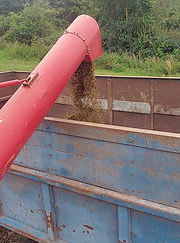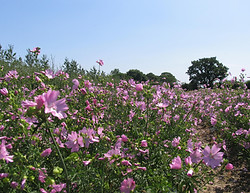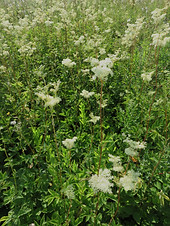
Our Wildflower Production
At All Things Rural, we specialise in the production of high-quality wildflower seeds, carefully grown, harvested and cleaned to ensure optimal germination and purity. Our wildflower production begins with cultivating species in ideal conditions, allowing them to thrive naturally. Harvesting is conducted at the peak of seed maturity to capture the best quality. Once collected, the seeds undergo meticulous cleaning to remove debris and unwanted materials, ensuring a high-purity product. This process guarantees that our wildflower seeds are ready to support the creation of vibrant meadows, promoting biodiversity and environmental sustainability.
We Produce Many Different Species of Wildflowers
The majority of the common species we will produce year after year, but some species may vary depending on requirement. Here are some of the species we grow…

Betony

Black
Knapweed

Cornflower

Corn
Chamomile

Corn
Marigold

Field
Poppy

Field
Scabious

Lady’s
Bedstraw

Meadow
Buttercup

Meadowsweet

Musk
Mallow

Oxeye
Daisy

Red
Campion

Ribwort
Plantain

Self
Heal

Teasel

Tufted
Vetch

White
Campion
Spring or Autumn
Sowing
We prefer to sow our wildflower species in autumn rather than spring. This approach allows crops requiring vernalisation (a period of cold to trigger germination) to benefit from the winter’s chill while also giving them a head start. The soil retains warmth from summer and the increased rainfall during autumn helps support successful germination.

The Best Seed for the Job
We are committed to sourcing only the highest quality seed for our crops, whether it’s seed we’ve produced ourselves or a new species we’ve carefully selected to bring in.
The ground is thoroughly prepared and the seed is drilled. We sow in blocks of single species. Any species that may hybridise, for example White and Red Campion, are kept in completely different areas, to reduce the risk of this happening.

Regular Crop Walks
Regular crop walking is essential throughout the growth of the crop, not just in the lead-up to harvest
As harvest approaches, inspections become more frequent to ensure the crop is gathered at its peak.
When it’s time to harvest, we use a standard combine to get the job done efficiently.



Harvest to Finished Product
When the crop turns brown and dull with visible seed heads, it’s ready for harvest.
After harvesting, the crop is brought in for drying. Since multiple crops often arrive for cleaning around the same time, ensuring the crop is thoroughly dried helps avoid mould during storage. The crop is laid out on the floor and turned regularly to ensure proper aeration and even drying.


Cleaning the Wildflower Seed
Cleaning is the final step in the seed production process.
We have a number of different types of cleaner which ensures the seed is thoroughly cleaned and ready for sale.
The process starts with the seed going through one of the pre-cleaners that is most appropriate for the type of seed. The pre-cleaners remove large chaff and unwanted plant matter from the seed before it is put through the main seed cleaner.

Seed going
through the
pre cleaner
Seed going
through the
main cleaner




Cornflower
before
cleaning
Cornflower
after
cleaning


Seed Germination Test
Once cleaned, seed samples are sent for analysis to assess germination, purity and the presence of any other material. Unlike grass seed, wildflowers don’t have standard germination requirements, but they must meet quality standards to ensure they are fit for purpose. This testing is a crucial step in maintaining the high quality of the seed.
All Things Rural partners with SeedLab 100 Limited, the largest independently owned seed testing laboratory in the UK. Licensed by DEFRA, they specialize in testing cereals, grasses, oil/fibre and pulse seeds while also offering comprehensive testing facilities for flower and vegetable seeds.
Here Are Some of Our Crops









Left to Right
Top: Red Campion, Teasel, Musk Mallow
Middle: Meadowsweet, Field Poppy, Oxeye Daisy
Bottom: Field Scabious, Meadow Buttercup, Self Heal
